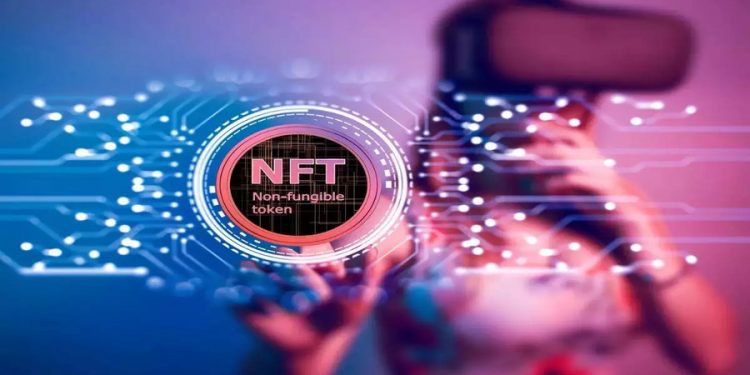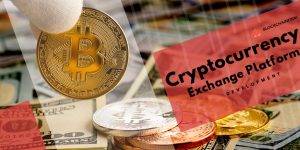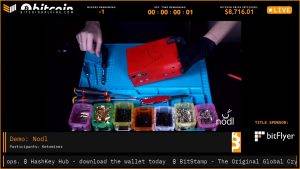Blockchain technology has been on the rise in recent years, and it is starting to make an impact in the gaming industry. One of the ways that blockchain is transforming gaming is through the use of non-fungible tokens (NFTs). In this article, we will explore how NFTs are changing the way we play games, trade virtual assets, and interact with game developers.
What are NFTs?
NFTs are digital assets that are unique and cannot be exchanged for something else. Unlike cryptocurrencies, which are fungible (i.e., interchangeable), NFTs are one-of-a-kind and cannot be replicated. NFTs are created using blockchain technology, which allows for a secure and transparent way to verify ownership and transfer of these digital assets.
How NFTs are Changing Gaming?
Ownership of In-Game Assets
Traditionally, players have owned in-game assets only as long as they are playing the game. Once they leave the game or stop playing, the assets become useless. However, with NFTs, players can own and trade in-game assets as they please, even outside of the game’s ecosystem. This means that players can monetize their in-game assets, and developers can earn a commission on transactions.
Play-to-Earn Model
NFTs can also introduce a play-to-earn model in gaming, where players can earn NFTs that can be used or sold outside of the game’s ecosystem. This allows players to monetize their skills and time spent playing games, providing them with an incentive to play for longer periods.
Decentralization and Transparency
The use of blockchain technology in gaming also brings decentralization and transparency to the industry. With blockchain, game developers can create games that are decentralized, meaning they do not rely on centralized servers to run. This means that games can continue to function even if the company that created them goes bankrupt or loses interest in maintaining them. Additionally, blockchain provides transparency in transactions, making it easy to track ownership and prevent fraud.
Community Involvement
NFTs can also involve the community in game development. Developers can create NFTs that represent a stake in the game’s development, allowing players to participate in decision-making processes and earn rewards for contributing to the game’s success.
New Game Designs
The use of NFTs can also lead to new game designs. Developers can create games that incorporate NFTs as a core part of the gameplay, making them more engaging and immersive for players. For example, a game could use NFTs to represent weapons or items, where the value of the NFTs is determined by the player’s performance in the game.
Cross-Game Compatibility
NFTs can also allow for cross-game compatibility, where players can use their NFTs in multiple games. This can create a more seamless and connected gaming experience for players, as they can carry their virtual assets with them across different games and platforms.
Immersive Virtual Worlds
The use of NFTs in gaming can also lead to the creation of more immersive virtual worlds. Developers can create complex ecosystems where players can trade and interact with virtual assets, creating a vibrant and dynamic gaming experience.
New Revenue Streams for Developers
NFTs also provide new revenue streams for game developers. They can earn a commission on transactions made with NFTs, which can incentivize them to create high-quality and engaging games that keep players coming back.
Reduced Transaction Fees
The use of NFTs can also reduce transaction fees associated with buying and selling in-game assets. Traditional payment methods such as credit cards and PayPal often charge high transaction fees, which can eat into players’ profits. With NFTs, transactions can be made directly between players, reducing the need for intermediaries and lowering transaction fees.
Greater Control for Players
NFTs also give players greater control over their virtual assets. Instead of relying on centralized game servers to store their assets, players can keep their assets in their own digital wallets. This gives them more control over their assets and reduces the risk of losing them if a game server shuts down.
New Business Models
The use of NFTs can also lead to new business models for game developers. They can create games that rely on the trading of virtual assets as the primary source of revenue, rather than traditional payment models such as subscription fees or in-game purchases.
Incentives for Creativity
NFTs can also provide incentives for creativity in game design. Developers can create NFTs that represent unique and rare items, which can incentivize players to explore the game world and discover new items.
Security and Transparency
NFTs also offer enhanced security and transparency in gaming. By leveraging blockchain technology, NFTs can provide a tamper-proof record of ownership and transaction history for virtual assets. This can help prevent fraud, hacking, and other forms of malicious activity.
Decentralization
NFTs can also support decentralization in gaming. By removing the need for centralized game servers and intermediaries, NFTs can create a more open and democratic gaming ecosystem. This can provide more opportunities for smaller game developers and players to participate and contribute to the industry.
Community Building
The use of NFTs can also foster community building in gaming. Players can connect with each other through shared ownership of rare and valuable assets, and can trade with each other to build their collections. This can create a sense of community and shared ownership that can deepen engagement and loyalty to games and game developers.
Inclusivity
NFTs can also promote inclusivity in gaming. By allowing players to earn money and trade virtual assets, regardless of their geographical location or economic background, NFTs can provide a more level playing field for players around the world. This can help democratize gaming and provide new opportunities for players who may have been excluded from traditional gaming ecosystems.
New Opportunities for Artists and Creators
NFTs also provide new opportunities for artists and creators in gaming. Artists can create unique and rare NFTs that represent their work, which can be traded and collected by players. This can provide a new source of revenue for artists and create a new market for digital art.
Enhanced Gaming Experience
Finally, NFTs can enhance the overall gaming experience for players. By providing a tangible and valuable connection to the virtual world, NFTs can create a deeper sense of immersion and engagement for players. This can increase player retention and loyalty, and can create a more vibrant and dynamic gaming ecosystem.
Challenges of Using NFTs in Gaming
While NFTs have the potential to revolutionize gaming, there are some challenges that need to be addressed. One of the biggest challenges is the environmental impact of creating and trading NFTs. The energy consumption required to mine cryptocurrencies and create NFTs has been criticized as unsustainable. Additionally, the current lack of regulation and oversight in the NFT market can lead to scams and fraud.
Another challenge is the potential for inequality in the gaming industry. While NFTs allow players to monetize their in-game assets, not all players have the same opportunity to earn valuable assets. This could lead to a widening gap between players who have valuable NFTs and those who do not.
Conclusion
In conclusion, the use of NFTs in gaming is transforming the industry in numerous ways, from creating new revenue streams for developers and players, to fostering community building and inclusivity, to enhancing security and transparency. While challenges such as environmental impact and inequality need to be addressed, the potential benefits of NFTs for the gaming industry are vast and far-reaching.









